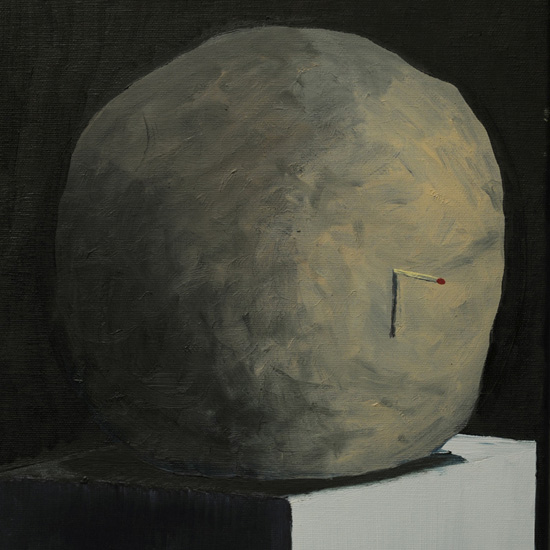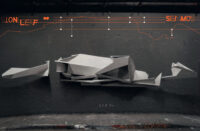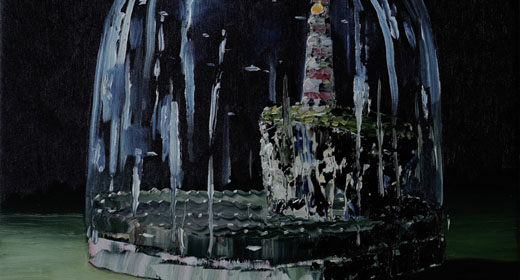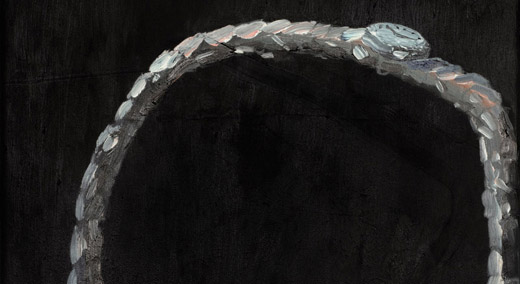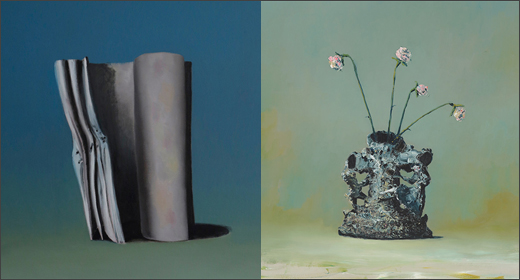As a consequence of being not quite hauntological, not quite classical or ballroom, not quite identifiably anything, An Empty Bliss Beyond This World is such an inscrutable work that its charms are in danger of eluding many.
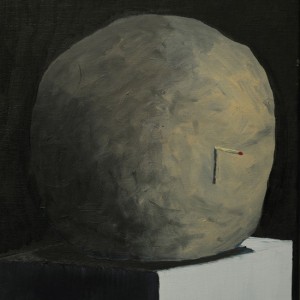
[Listen | Purchase] After an approximately one year silence that set in after the re-issue of The Caretaker’s critically acclaimed Persistent Repetition of Phrases, the sporadically prolific James Leyland Kirby has burst back onto the scene with a slew of new recordings scheduled to be released across 2011: a four-part 12″ series entitled Intrigue and Stuff as Leyland Kirby, the re-issue of the previously mailing-list only two disc version of the epic Sadly, the future is no longer what it was, and a forthcoming soundtrack as The Caretaker entitled Patience after Seabald join ‘An Empty Bliss Beyond This World, the follow up to Persistent Repetition of Phrases that find The Caretaker in a more positive, playful and reflective frame of mind than before.
The Caretaker project has traditionally addressed the subject of memory disorders and brain dysfunctions, coupling them with a sort of deranged nostalgia and degraded patina. An Empty Bliss Beyond This World is no exception, but has Kirby been able to make this work without re-treading old ground? Well, yes. In spite of being tagged once again as “hauntological” there’s a notably different slant on these themes on “An empty bliss beyond this world” that makes that label feel rather inappropriate. A greater focus on the aged, ballroom and dance hall 78’s that remain the primary source of Kirby’s memory loops largely replace the spectral, mist-filled ante-chambers of Persistent Repetition of Phrases, and with just a limited overdubbing of echoing, cavernous drips or vinyl crackle and hiss to contain them, the result is certainly a lot less disturbing and ethereal. Indeed quite a few tracks will undoubtedly raise a smile.
The album is also different structurally as fifteen vignettes of stuck and degraded loops are choppily cut together, quickly settling into cyclical melodies for just a few short minutes. The approach is initially quite a shock, as if a mastering error had crept onto the disc and spread like a virus. With no fade outs, no closing fanfares or segues, just an immediate cut from one piece to the next, it all becomes quite disorienting, as frustrating as being unable to remember something that lurks just on the edge of recollection as one flits from one memory to the next.
Three tracks in particular stand out simply because they most prominently showcase their ballroom 78 origins: opener “All you’re going to want to do is get back here,” the motion blurred, looped “shall we dance?” introduction of “Libet’s Delay” and the slowed down, late night, salutary after dinner waltz of “Camaraderie at arms length” that warbles and creaks with warm but dusty old age, and it is these that are the most likely to tug at the corners of your mouth.
But elsewhere, the memories are far more faded, scratched and blurred, some even parenthetically appearing twice in different versions, wrong-footing the listener once again with another suspicion of error in playback. The merest mumble and murmur of radio chatter joins two completely different piano solos that seem to collide in the first version of “An empty bliss beyond this world,” all but consumed in crackle and blank space, whilst in the second the pianos can be heard more clearly, but the sound is breaking up, shifting back and forth between the left and right channel. Within these parentheses the mind begins to wander even further as two versions of “Mental Caverns without Sunshine” – all morose strings, background sobs and wheezes – bookend the unnerving “Pared Back To The Minimal.”
Things get even more cobwebbed and confused on “Bedded deep in long term memory” as the most clipped piano loops again flit from left channel to right channel, sputtering into moments of lucidity before disappearing once more, whilst on “Tiny gradiations of loss” the distortion begins to scrub elements of the melody away completely, causing scars that permanently obfuscate the memory. The only piece that is allowed to come to a natural conclusion is the final track, “The sublime is disappointingly elusive,” as the big band winds down for the night.
As a consequence of being not quite hauntological, not quite classical or ballroom, not quite identifiably anything, An Empty Bliss Beyond This World is such an inscrutable work that its charms are in danger of eluding many. It may bypass those out there who prefer Kirby’s more long-form, smeared and woozy ambient work but it is every bit as effective and affecting. Though the polarising days of V/VM are long gone, what it asks of the listener is a sense of humour and the ability to actively enjoy the aged source material that Kirby has spliced and looped together. It’s a truly haunting experience that is buoyed up by a heady dose of nostalgia and affection that bestows upon it an oddly lilting quality, and it is this beautifully concocted cocktail of seemingly opposing flavours that make The Caretaker project one of Kirby’s most endearing.
An Empty Bliss This World is out now on History Always Favours The Winners. [Listen | Purchase]






